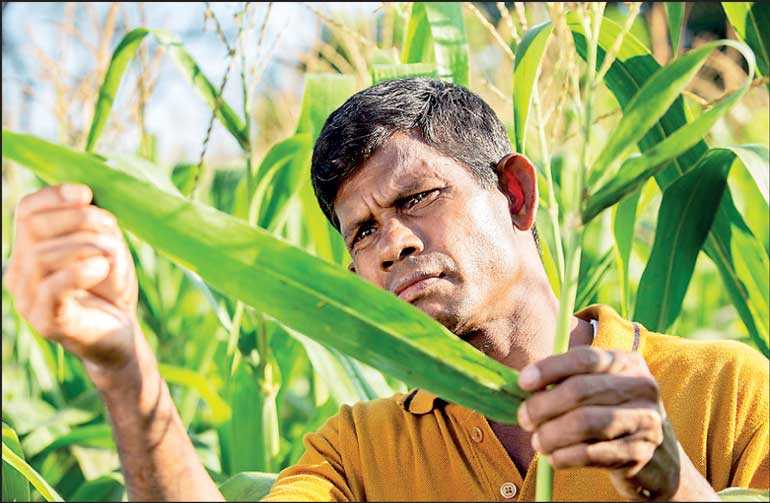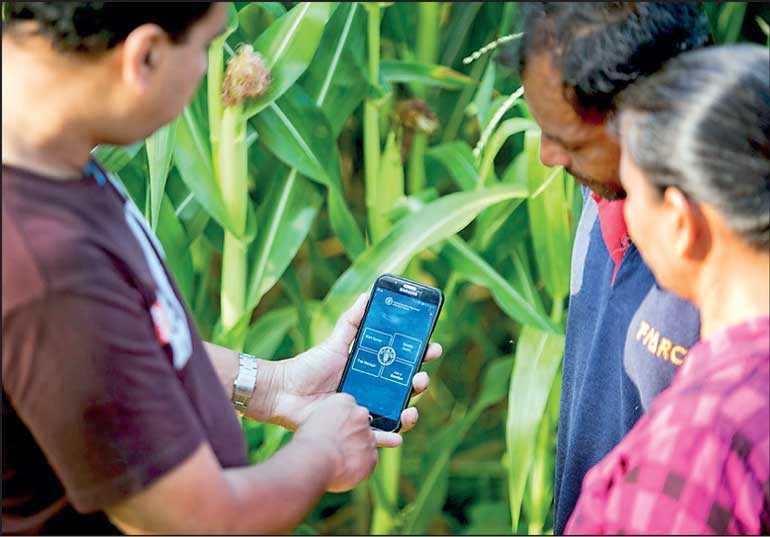Tuesday Feb 24, 2026
Tuesday Feb 24, 2026
Tuesday, 17 December 2019 00:00 - - {{hitsCtrl.values.hits}}


The Food and Agriculture Organization of the UN (FAO) has launched a pioneering initiative – ‘Global Action for Fall Armyworm Control’, that aims to mobilise $ 500 million over 2020-22 to take radical, direct and coordinated measures to fight Fall Armyworm at a global level.
Fall Armyworm is an invasive moth originating in the Americas. It prefers to eat maize but also feeds on 80 or more other crops, including rice, sorghum, millet, sugarcane, vegetable crops and cotton. Once established in an area, Fall Armyworm is almost impossible to eradicate and very difficult to stop spreading.
FAO’s new Global Action for Fall Armyworm Control will massively scale up FAO projects and activities to reach out to hundreds of millions of affected farmers. The Global Action has three key objectives: i) establish global coordination and regional collaboration on monitoring, early warning, and Integrated Pest Management of Fall Armyworm; ii) reduce associated crop losses; and iii) lower the risk of further spread.
The Global Action is expected to mobilise global resources and expertise to enhance national capacities to tackle Fall Armyworm, reinforce efforts to discourage widespread use of highly hazardous pesticides, and provide resources for scientific research and innovation to develop efficient solutions to tackle the pest, such as FAO’s Fall Armyworm Monitoring and Early Warning System mobile app.
The Fall Armyworm Monitoring and Early Warning System (FAMEWS) tool, uses artificial intelligence to help farmers with smartphones detect Fall Armyworm damage and choose appropriate response actions. As a near real-time data centre, FAMEWS allows for better estimates on pest spread and crop damage, which helps in targeting interventions.
The Global Action will target the three regions that have experienced a Fall Armyworm invasion in recent years – Africa, the Near East and Asia. Paramount in the Global Action will be coordinated efforts to spread knowledge and information to smallholders affected by Fall Armyworm, especially through the establishment or scaling up of dedicated national task forces. These task forces will both bolster and go beyond current FAO initiatives, such as the Farmer Field School program, reaching into the most isolated communities.
In Sri Lanka, FAO is providing funding and technical assistance to the Department of Agriculture to fill the technical gap in Fall Armyworm control measures, particularly in conducting research on breeding natural enemies, gaps in monitoring and awareness creations. FAO is also working on translating the Fall Armyworm Monitoring and Early Warning System (FAMEWS) mobile application to local languages in Sri Lanka.